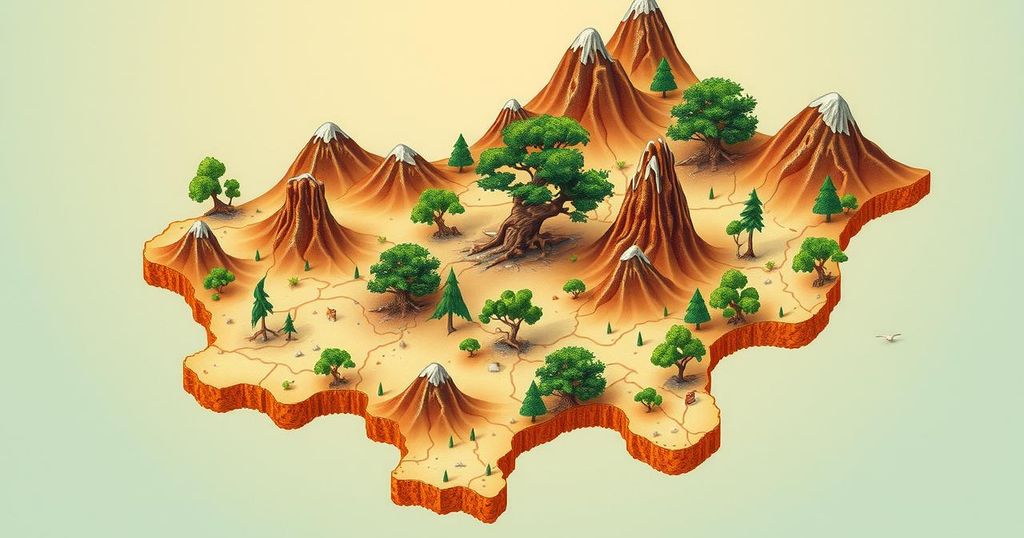The Democratic Republic of Congo faces a worsening crisis, with dire humanitarian conditions exacerbated by political instability and military conflicts, particularly involving the M23 rebel group. Recent diplomatic efforts have shown promise but have quickly faltered amidst rising tensions, highlighting the ineffective responses to the ongoing turmoil. Without substantial intervention, the DRC’s future remains uncertain amid a backdrop of inadequate governance.
The situation in the Democratic Republic of Congo (DRC) is rapidly deteriorating. Prior to the capture of Goma and Bukavu by the Rwanda-backed M23 in January, less than 13 percent of the eleven million individuals requiring assistance were receiving aid. The International Rescue Committee has reported a significant decline in health services in eastern Congo, with a worrying surge in cholera cases as the population grapples with inadequate sanitation.
Additionally, the Southern African Development Community has opted to withdraw its stabilization mission, not due to the achievement of their objectives, but rather a lack of willingness to incur further casualties while supporting the Congolese government, which appears to be disorganized and panicked about potential regime change.
Although Angola’s offer to mediate discussions between the DRC and M23 suggested a potential path towards de-escalation, optimism has been short-lived. Following European Union sanctions placed on Rwanda, the M23 withdrew its commitment to the talks. Moreover, Rwandan President Paul Kagame has rebuffed these sanctions, labeling them as “neo-colonial interference” and cut diplomatic ties with Belgium, signaling his government’s defiance.
Recent discussions mediated by Qatar between Kagame and DRC President Tshisekedi yielded another commitment to ceasefire, which raises doubts regarding feasibility, especially given the past instances where similar promises were quickly abandoned. The Congolese government remains focused on preserving its regime, while Rwanda appears eager to pursue its ambitions in the region.
This unfolding crisis in eastern Congo reflects a shift in global politics, as illustrated by the actions of prominent leaders such as Vladimir Putin and Donald Trump. The embrace of realpolitik has overshadowed humanitarian concerns, leading to a resurgence in territorial conflicts and raising questions about the governance problems plaguing the DRC and the welfare of its citizens.
In conclusion, the situation in the Democratic Republic of Congo remains dire, characterized by a humanitarian crisis and ineffective international support. Diplomatic efforts, including potential talks between conflicting parties, have proven to be ineffective. The dynamics of global statecraft today, shaped by significant political figures, continue to exacerbate the complexities of establishing a more stable and just government for the Congolese people. Without active and genuine intervention, the future appears bleak for the DRC.
Original Source: www.cfr.org




